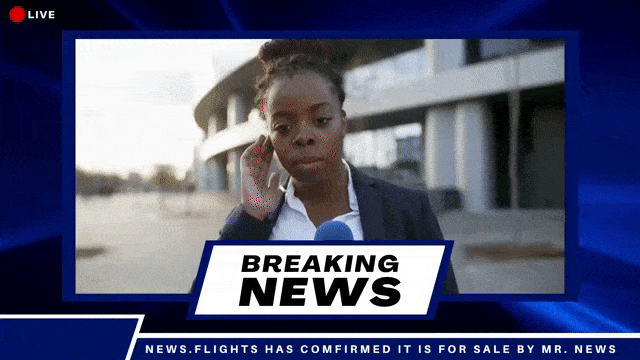Have you ever heard the saying, “Age is just a number”? In the world of music and creativity, this adage holds more truth than ever before. If you’re approaching or have surpassed your thirtieth birthday and are nurturing dreams of writing that hit song, you’re in good company. The music industry is brimming with stories of late bloomers who found their musical voice later in life, proving that 30 is just the beginning for aspiring songwriters.
In this blog post, we’re going to debunk the myth that songwriting is solely a young person’s game. With examples from experienced songwriters who started their journey in their 30s or later, insights into how maturity can enhance creativity, and practical advice for cultivating your talent at any age, we aim to inspire you to chase your musical dreams, regardless of your age.
Many assume that to succeed in the music industry, you must start young and hit it big early. However, the reality is that musical expression and success are not confined to the early decades of life. Writing from life experience, embracing creativity throughout one’s life, and pursuing passions at any age are not just possible but can be deeply rewarding. This blog will explore how age can actually be an advantage, bringing depth and authenticity to your songwriting that only life experience can provide.
Whether you’re just starting out or looking to reignite your passion for music, remember: every journey is unique, and yours doesn’t have to follow a predefined timeline. Let’s explore how you can begin or continue your songwriting journey with confidence and enthusiasm, proving that when it comes to creative expression, there’s no such thing as too late.

Introduction to the Myth of Age in Songwriting
In a world that often celebrates youthful achievements, particularly in the arts, it’s easy to fall into the trap of thinking there’s an expiration date on creative success. This is particularly prevalent in the music industry, where it seems every new star is younger than the last. However, this notion that you need to have made it by your early twenties is not only unfounded but also discouraging for many aspiring songwriters who find their calling at a later stage.
Common Misconceptions About Age and Creative Careers
The misconception that younger is always better pervades many aspects of the creative industries. It’s fueled by media stories glorifying teen prodigies and ’30-under-30′ lists that imply if you haven’t made it by 30, you probably never will. This myth can lead to a significant amount of pressure and can deter individuals from pursuing their true passions later in life.
Overview of Why 30 is Not Too Late to Start a Career in Songwriting
Contrary to popular belief, turning 30 is not the end of the road for aspiring songwriters but rather a promising beginning. Many successful songwriters and musicians didn’t start their careers until their thirties or even later. Leonard Cohen released his first album at 33, and Debbie Harry hit her stride with Blondie in her mid-thirties. These artists demonstrate that creativity does not diminish with age; in fact, the depth and breadth of life experience can enrich one’s songwriting significantly.
Moreover, entering the songwriting field at a later age comes with its own set of advantages, such as:
- Mature emotional perspective which can lead to more profound lyrical content.
- Better financial stability to fund projects independently.
- Increased networking opportunities through longer-term relationships.
Purpose of This Blog Post
The primary purpose of this blog post is to dismantle the age-old myth that one must be young to succeed in creative fields like songwriting. By debunking this myth, we aim to encourage those who dream of writing songs to pursue their passion regardless of their age. It’s never too late to start, and sometimes, it might just be the perfect time.
In conclusion, your age should never be a deterrent in pursuing a career in songwriting. Whether you are 30, 40, or even older, the music industry always needs fresh voices and perspectives. Let the stories of those who found success later in life inspire you, and remember, in art as in life, timing is everything—your best song might still be ahead of you. So, grab your pen, your instrument, and your voice, and start crafting those melodies—your audience is waiting.
Current Trends and Dynamics in the Songwriting Industry
The landscape of the songwriting industry has undergone significant transformations in recent years, influenced by shifts in demographics, technological advancements, and changes within the music business itself. These elements have reshaped the path to success for many aspiring songwriters, proving that age is just a number when it comes to breaking into the industry.
Demographics of Successful Songwriters
The demographic profile of successful songwriters is more diverse than ever. While the image of young prodigies dominating the charts persists, data shows an increasing number of songwriters finding their first major successes well into their 30s, 40s, and beyond. This shift is largely due to broader changes in societal norms and the democratization of music production and distribution. Mature songwriters bring rich experiences and unique perspectives to their work, often resonating with a wide audience across age groups.
Changes in the Music Industry Affecting Songwriters
The music industry’s evolution has significantly impacted songwriters. With the decline of traditional album sales and the rise of streaming services, songwriters have had to adapt not only how they write but also how they monetize their work. Streaming platforms favor a constant supply of new music, encouraging songwriters to produce high-quality content at a faster pace. Additionally, the global reach of digital music platforms means songwriters can now reach international audiences more easily, increasing the potential for worldwide hits created by songwriters from any background or age.
Role of Digital Media and Technology in Songwriting Success
Digital media and technology have leveled the playing field for many aspiring songwriters. Social media platforms, music software, and online collaborations have made it easier for songwriters to showcase their talents, connect with other musicians, and gain exposure without traditional gatekeepers. Tools like AI-enhanced music production software allow songwriters to experiment with different sounds and styles, pushing creative boundaries and fostering innovation in songwriting.
- Social Media Platforms: Sites like Instagram, TikTok, and YouTube serve as vital tools for songwriters not only to share their music but to engage directly with fans, receive feedback, and build a following.
- Music Production Software: Advanced software provides songwriters with the ability to produce studio-quality music right from their homes, reducing the need for expensive studio time and allowing for greater creative control.
- Online Collaboration Tools: Digital collaboration platforms enable songwriters to work with artists and producers globally, breaking down previous geographical and logistical barriers and fostering a more inclusive industry environment.
The current trends in the songwriting industry highlight a dynamic and evolving field where age is not a barrier but rather a potential asset. The integration of digital tools and platforms continues to empower songwriters, giving them unprecedented control over their careers and the ability to impact global audiences. As these trends continue to develop, the songwriting scene is set to become even more diverse and innovative, making it an exciting time for aspiring songwriters of all ages to make their mark.
Inspirational Accounts of Songwriters Who Started After 30
Many believe that the music industry is solely a young person’s game, but numerous songwriters who launched their careers after the age of 30 challenge this stereotype. These late bloomers prove that creativity knows no age limit, offering inspiration and valuable lessons for those who dream of making it big in songwriting regardless of their current age.
Case Studies of Successful Songwriters
One of the most compelling examples is Leonard Cohen, who released his first album at the age of 33. His deep, evocative lyrics and unique voice have made him an iconic figure in music. Similarly, Sheryl Crow didn’t achieve major success until her early 30s when she won multiple Grammy Awards for her album “Tuesday Night Music Club”. These artists demonstrate that persistence and passion can lead to success, irrespective of when one starts.
Key Factors Contributing to Their Success
- Persistence: Late starters often face the challenge of breaking into an industry dominated by younger talents. However, their persistence in refining their craft and adapting to the industry standards often pays off spectacularly.
- Life Experience: Older songwriters bring a wealth of life experiences to their work, providing depth and authenticity to their lyrics that resonate with a wide audience.
- Professional Networks: By the time they reach their 30s, many aspiring songwriters have built a network of contacts in the music industry, which can be crucial for launching their careers.
These key factors not only contribute to their artistic development but also enhance their ability to connect with audiences and industry professionals alike.
How These Stories Can Motivate Aspiring Songwriters
The journeys of these successful songwriters are not just stories; they are testaments to the fact that it’s never too late to pursue your dreams. They serve as powerful motivational tools for aspiring songwriters who might feel discouraged by their age. Understanding that the path to success doesn’t have a strict timeline can free creative spirits to focus more on their art rather than on arbitrary age constraints.
In conclusion, the music industry has numerous examples of individuals who started their songwriting careers well into their 30s and beyond, achieving great success. These stories highlight the importance of determination, leveraging life experiences, and building strong professional networks. They collectively debunk the myth that age is a barrier to success in the music industry, proving instead that age can indeed be an asset.
Common Barriers for Aspiring Songwriters Over 30 and Solutions
Embarking on a songwriting career later in life comes with its unique set of challenges. However, understanding these barriers and exploring effective strategies can pave the way for success, no matter your age. Here, we delve into the common hurdles faced by aspiring songwriters over 30 and provide practical solutions to overcome them.
Age-Related Biases in the Music Industry
It’s no secret that the music industry often favors younger talents, which can be discouraging for those starting out later in life. Age-related biases can manifest in fewer opportunities, skepticism from industry professionals, and a general perception that music is a young person’s game.
- Solution: Focus on creating timeless music that resonates across age groups. Highlighting your life experiences in your lyrics can add depth and authenticity that differentiates your work. Additionally, target platforms and labels that are known for their diverse artist rosters and are less influenced by age biases.
Balancing Responsibilities
Many aspiring songwriters over 30 have significant personal and professional responsibilities, such as family commitments and full-time jobs. This can limit the time available for creativity and industry networking.
- Solution: Effective time management is crucial. Set aside dedicated times for songwriting and treat it with the same importance as any other appointment. Communicate with your family about your aspirations so they can support you. Consider collaborative songwriting to share the workload and enhance your creative output.
Networking Strategies for Older Entrants
Breaking into the music scene often requires robust networking, which can be intimidating if you’re starting out later than your peers. The feeling of being an outsider or not fitting into the existing networks can be a barrier.
- Solution: Leverage your existing connections, even if they are outside the music industry. You never know who might introduce you to your next collaborator or industry contact. Attend music events, workshops, and seminars to connect with like-minded individuals. Online platforms also offer immense networking opportunities—join forums, participate in virtual meetups, and engage with community pages relevant to songwriting.
Overcoming the challenges associated with starting a songwriting career after 30 is undeniably tough but entirely possible. By confronting age-related biases head-on, effectively managing your responsibilities, and strategically building your network, you can successfully navigate your way through the complexities of the music industry. Remember, the richness of your experiences can bring a unique and valuable perspective to your music, setting you apart from the crowd.
Building Essential Skills for a Successful Songwriting Career
Embarking on a songwriting career after 30? No worries! Age is merely a number when it comes to unleashing your creative musical talents. Let’s dive into the essential skills you need and how you can develop them, explore educational resources tailored for late starters, and understand the importance of continuous learning and adaptation in the dynamic field of songwriting.
Important Songwriting Skills and How to Develop Them
Songwriting isn’t just about stringing words together; it requires a blend of creativity, technical skills, and emotional intelligence. Here are some critical skills every songwriter should cultivate:
- Creativity and Originality: The core of songwriting is the ability to create something new and engaging. Boost your creativity by listening to a wide range of music and reading extensively.
- Lyrical Writing: The ability to write compelling lyrics that resonate with listeners is essential. Practice writing regularly, experiment with different poetic forms, and study the lyrics of successful songs.
- Musical Theory: Understanding the basics of musical theory can enhance your songwriting significantly. Learn about scales, chords, and song structures.
- Arrangement: Arranging your song effectively ensures that it flows smoothly and captures the listener’s attention throughout. Work on arranging skills by dissecting popular songs to see how they are put together.
To further hone these skills, regular practice is key. Participate in songwriting workshops, collaborate with other musicians, and get feedback from peers and professionals.
Educational Resources and Courses Beneficial for Late Starters
It’s never too late to start learning, and numerous resources cater specifically to aspiring songwriters who are beginning their journey later in life:
- Online Songwriting Courses: Websites like Coursera and Udemy offer courses taught by industry professionals that cover everything from basic songwriting techniques to advanced composition.
- Local Music Classes: Community colleges and adult education centers often provide music classes that can give hands-on experience and personalized guidance.
- Books on Songwriting: Titles such as “Writing Better Lyrics” by Pat Pattison and “Tunesmith: Inside the Art of Songwriting” by Jimmy Webb provide invaluable insights into the craft of songwriting.
By taking advantage of these resources, you can build a solid foundation in music theory and lyrical writing, crucial for crafting hit songs.
Role of Continuous Learning and Adaptation in Songwriting
The music industry is continually evolving, and successful songwriters are those who adapt to changes and continuously learn. Whether it’s new music technology or shifting trends in music consumption, staying updated is vital. Here are ways to ensure you remain relevant:
- Follow Industry Trends: Keep an eye on the charts, subscribe to music industry newsletters, and follow influential music blogs.
- Experiment with Different Genres: Don’t box yourself into one genre. Exploring different styles can inspire new ideas and increase your versatility as a songwriter.
- Embrace Technology: Utilize software and applications that can help in composing, recording, and editing music. Tools like GarageBand or Ableton Live can dramatically streamline the songwriting process.
Remember, the journey of learning never ends, especially in a field as dynamic as songwriting. Embrace each phase of your development with passion, and don’t be afraid to step out of your comfort zone. With persistence and dedication, the stage is set for you to write your next big hit.
Utilizing Technology and Social Media to Boost Your Songwriting Career
Overview of Digital Tools and Software That Aid Songwriting
For aspiring songwriters, leveraging the right technology can significantly streamline the creative process. Digital tools like Ableton Live, Logic Pro, and GarageBand offer comprehensive functionalities that not only help in composing and recording music but also in editing and mixing tracks seamlessly. These platforms come equipped with virtual instruments, samples, and loops, enabling artists to experiment with different sounds and styles without the need for expensive studio equipment.
Additionally, songwriting apps such as Songwriter’s Pad or Rhymers Block are excellent for lyric writing, providing features like rhyming dictionaries and thesaurus, which are invaluable for crafting compelling lyrics. Such tools are designed to boost creativity and help maintain an organized approach to songwriting.
Effective Use of Social Media for Promotion and Networking
Social media platforms like Instagram, Twitter, and Facebook are powerful tools for songwriters to promote their work and connect with fans and fellow artists. Creating engaging content that showcases your music, sharing behind-the-scenes clips, and interacting with your audience can help build a loyal fanbase. Regular updates and consistent engagement on these platforms increase visibility and open up opportunities for collaborations and gigs.
Furthermore, platforms such as SoundCloud and Bandcamp allow songwriters to upload their music directly to the audience. These sites are not only great for gaining exposure but also provide valuable analytics to understand listener demographics and preferences, which can guide future projects.
Case Examples of Songwriters Who Effectively Use Online Platforms
- Casey Moreta: Initially a bedroom songwriter, Casey utilized YouTube to share her original songs and covers. Her distinct style quickly garnered a substantial following, leading to her discovery by a major record label.
- Julia Michaels: Known for her prolific songwriting, Julia used Instagram to showcase her songwriting process, engaging her followers by sharing snippets of upcoming tracks and lyric drafts. This transparency not only built a deeper connection with her audience but also set her apart in a competitive industry.
- Ethan Gruska: Ethan leveraged SoundCloud to debut his experimental compositions, attracting attention from niche online communities and eventually collaborating with established artists. His strategic use of SoundCloud’s unique platform features helped him reach audiences interested in alternative genres.
These examples illustrate that when used strategically, social media and digital platforms can dramatically enhance a songwriter’s career. By showcasing their unique voice and connecting with a global audience, songwriters can achieve unprecedented levels of exposure and success.
In conclusion, the digital age offers a plethora of tools and platforms that can transform the way songwriters create, share, and promote their music. By embracing these technologies, songwriters not only improve their craft but also significantly broaden their reach and influence in the music industry.
Conclusion
In this exploration of the vibrant world of songwriting past the age of 30, we’ve debunked the myth that age is a barrier to success in the music industry. From understanding the dynamics of modern songwriting to celebrating the inspirational journeys of those who started their careers after 30, it’s clear that passion and creativity know no age limit.
By addressing common challenges faced by aspiring songwriters over 30 and offering practical solutions, this blog post empowers individuals to pursue their dreams with confidence. The integration of technology and social media has transformed the landscape, making it easier than ever for songwriters to share their work and connect with audiences worldwide. Moreover, building essential skills remains at the forefront of forging a successful career in songwriting.
Whether you’re just starting out or looking to rekindle your passion for music, remember that every day presents a new opportunity to write your own story. Let the accounts of those who have thrived in their 30s and beyond inspire you to take that next step towards your songwriting aspirations.











Post comments (0)